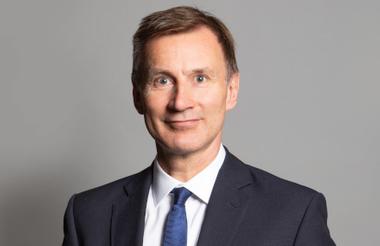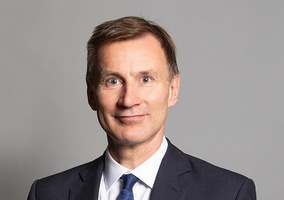Charity sector bodies have urged chancellor Jeremy Hunt to provide more funding to public bodies and warned that underfunded contracts “are now posing a serious threat” to charities.
The Civil Society Group said in a letter to Hunt that high inflation had eroded the value of grants and contracts in recent years and urged him to address the issue in his autumn statement on 22 November.
Comprising over 50 organisations including NCVO, ACEVO and the Charity Finance Group, the group reiterated its call on the government to address the issue of irrecoverable VAT by introducing a 0% on purchases made by charities.
It once again urged the government to reintroduce a VAT relief for the installation of energy saving materials (ESMs) and extending business rates relief to charity’s trading subsidiaries.
The group also called for an “essentials guarantee”, which would mean that Universal Credit should protect people from going without essentials.
Call to uplift grants and contracts
The group urged Hunt to provide more funding to public bodies so that they can uplift grants and contracts for public services to cover the costs of public service delivery.
It said: “Typically, the grants and contracts for these services do not have inflationary uplifts built in. Inflation has therefore been eroding the value of these grants and contracts for many years – but with the inflation rate peaking at over 11% in 2022, underfunded grants and contracts are now posing a serious threat to charities’ ability to deliver public services, and to communities’ access to these services.”
Underfunding grants and contracts poses three main risks, the group said, including a reduced level and quality of service delivery, a less resilient provider base and a shrinking provider base, “which drives down quality, choice, and innovation, and may mean no one is left to deliver the service”.
“Identifying communities’ needs, designing services to meet them, and understanding the costs of delivering those services is eminently possible, particularly when public bodies work in partnership with the voluntary sector,” the group said.
“There must be sufficient funding to allow public bodies to provide these services, and this funding must come with an expectation that it will be used to uplift grants and contracts to cover the true costs of delivery.”
Tax system overhaul
The group reiterated its call on the government to streamline and review the charity tax system.
It called for the introduction of “a new special charity VAT rate on purchases made by charities” that would “complement existing reduced and zero rates, and the social exemptions”.
“Irrecoverable VAT costs the sector an estimated £2bn a year,” it said.
“Introducing a special VAT rate (ideally set at 0%) on purchases made by charities would be simple, effective, and allow government to reduce the VAT burden for charities.”
The group suggested reintroducing a VAT relief for the installation of ESMs and extending charitable rate relief to wholly-owned charity trading subsidiaries.
“The current legislation on business rates means that charities can lose vital business rates relief if they organise their activities through a wholly-owned subsidiary,” it said.
“Many charities opt to operate specific activities, such as charity shops, through wholly-owned subsidiaries as this is an efficient means of ring-fencing funds and managing risk. This is consistent with Charity Commission guidance on protecting charity assets.
“However a charity structures its fundraising activities, the purpose is to generate funds to further its charitable purposes and the application of rules on charitable rates relief should not inadvertently penalise charities seeking to reduce risk.”
Related articles












